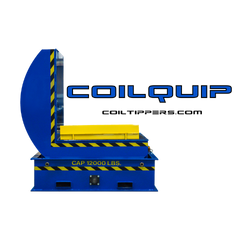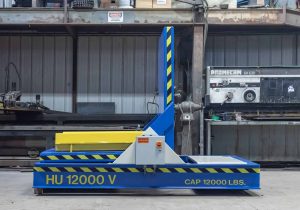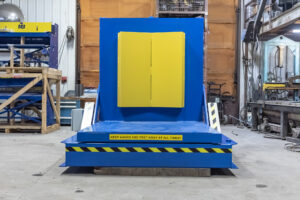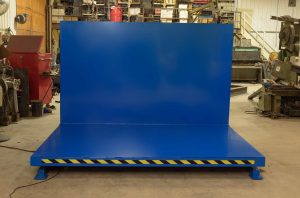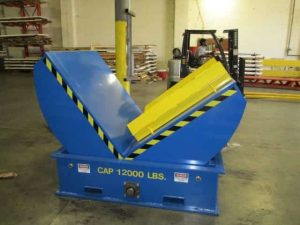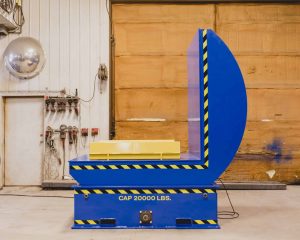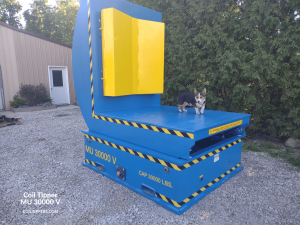KION Group has entered into a strategic partnership with Li-Cycle Holdings Corp., an industry leader in lithium-ion battery resource recovery, KION announced today.
KION Group and Li-Cycle held a signing ceremony at KION GROUP AG’s Frankfurt headquarters to finalize the definitive agreement for the partnership. It will initially remain in place until 2030. According to the agreement, the environmentally friendly recycling of lithium-ion batteries will begin in the second half of this year. KION Group brands sell such batteries worldwide with their electric industrial trucks and automated warehouse logistics solutions. With this new partnership, the KION Group ensures that the most important materials from the lithium-ion batteries it supplies can be recovered. Recycling will initially be carried out in a new Li-Cycle recycling plant in the Magdeburg area with expansion into other countries, including France.
“With this strategic partnership we are taking an important step towards the circular economy that we want to implement for our products,” said Henry Puhl, Chief Technology Officer of the KION GROUP AG upon signing the agreement. “The collaboration with Li-Cycle will further strengthen our position in the area of sustainability.” Andreas Krinninger, member of the Executive Board of KION GROUP AG and responsible for the Industrial Trucks & Services segment, sums up the benefits: “Li-Cycle´s sustainable Spoke & Hub process enables up to 95 percent of the mass of a lithium-ion battery to be recovered and the critical minerals contained in those batteries to be used to manufacture new batteries. This makes us one of the pioneers in the material handling industry in the field of recovery and recycling of modern lithium-ion batteries.”
“We are pleased to partner with KION Group, a proven leader in electrifying industrial truck solutions and one of the world’s leading specialists in the area of warehouse technology and automation,” said Tim Johnston, co-founder and Executive Chairman of Li-Cycle. “Li-Cycle is excited to be designated as KION’s preferred global recycling partner as we continue to grow and diversify our customer portfolio to advance our expansion plans in Europe and help drive a sustainable and localized battery ecosystem. Through our partnership, Li-Cycle expects to support both KION’s recycling needs and their ability to align with the EU’s battery regulations. Together, we build a circular battery supply chain and further support the clean energy transition.”
Li-Cycle’s Spoke & Hub business model is focused on an innovative and sustainable two-step lithium-ion battery recycling and resource recovery process, the partners explained.
The first step of the process takes place at its Spoke facilities, which utilize Li-Cycle’s patented and sustainable submerged shredding technology. The process produces ‘black mass,’ an intermediate product which contains highly valuable metals. Li-Cycle does not use high-temperature recycling methods and their Spokes have a minimal environmental footprint.
The second step involves a hydrometallurgical process that produces battery-grade materials such as lithium carbonate, cobalt sulphate and nickel sulphate from the black mass. Li-Cycle’s process has minimal solid waste streams to landfill, zero wastewater discharge, and low air emissions.
Li-Cycle currently operates four Spokes located in Canada and the U.S. that can together recycle more than 50,000 tons of lithium-ion battery material per year. The Company is also developing Spokes in Germany, Norway and France. The Germany Spoke, with capacity to process up to 30,000 tons, is expected to be Li-Cycle’s largest Spoke to-date and is scheduled to be operational in 2023.
Alongside the goal of constantly improving the sustainability of its own products and solutions, this partnership will also enable the KION Group to meet the requirements of the future EU regulation on batteries and used batteries, the group added. The EU Commission’s “Green Deal” proposes to further expand the circular economy of the battery value chain. The aim is for all batteries collected to be recycled going forward and thus achieve a higher utilization ratio, particularly for valuable materials such as copper, cobalt, lithium, nickel and lead.
